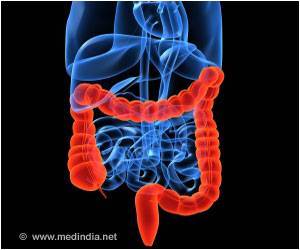
"We've known for a long time that after some people develop diverticulitis, they're a different person. They experience recurrent abdominal pains, cramping and diarrhea that they didn't have before," Spiegel said. "The prevailing wisdom has been that once diverticulitis is treated, it's gone. But we've shown that IBS symptoms occur after the diverticulitis, and it may result from an inflammatory process like a bomb going off in the body and leaving residual damage."
The study appears Sept. 5, 2013 in the peer-reviewed journal Clinical Gastroenterology and Hepatology.
As they age, most people develop diverticulosis, or pouches in the lining of the colon. More than 50% of people over 60 have the condition, but the pouches usually don't cause any problems. Occasionally, the pouches become inflamed, leading to diverticulitis, which causes pain and infection in the abdomen. Doctors usually treat it with antibiotics, or in more severe cases, surgery.
"A major surprise in our study was that diverticulitis patients not only developed IBS at a higher rate than the controls, but they also developed mood disorders like depression and anxiety at a higher rate," Spiegel said. "Because IBS and mood disorders often go hand in hand, this suggests that acute diverticulitis might even set off a process leading to long-standing changes in the brain-gut axis."
The discovery of PDV-IBS could mean better attention to patients complaining of symptoms after diverticulitis, symptoms that up until now may have been dismissed by physicians. Spiegel said the PDV-IBS "Patients often report ongoing IBS symptoms after the diverticulitis has long passed, and this study supports their beliefs and introduces a new diagnosis," Spiegel said. "If doctors recognize this, they may take the symptoms more seriously and manage them actively, just as they can manage IBS actively with various new drugs on the market and currently in development."
Advertisement
"This study expands our understanding a little bit about what might cause IBS. It's such a common condition and there may be different flavors," Spiegel said. "We've now added a new flavor to the menu, a new risk factor for developing IBS. By learning more, we might be able to expand the therapies we can use on these patients."
Advertisement
"Our findings support the evolving paradigm of diverticular disease as a chronic illness- not merely an acute condition marked by abrupt complications. Far from a self-limited episode, acute diverticulitis may become a chronic disorder in some patients," the study states. "Diverticulitis is correlated with not only chronic IBS symptoms, but also long-term emotional distress beyond the event itself. Awareness of this possible risk is important because persistent, untreated gastrointestinal symptoms and comorbid depression may worsen outcome and increase the economic burden of an already prevalent disease."
Source-Eurekalert















